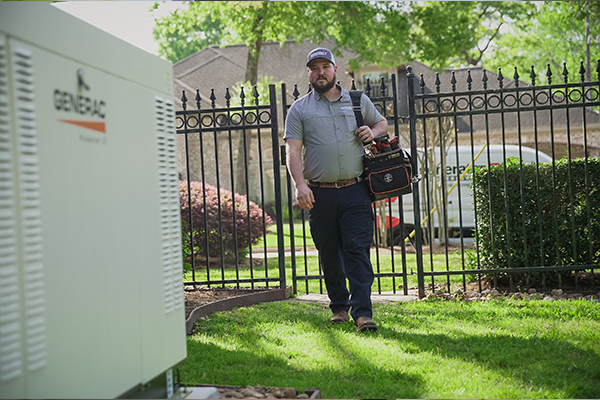What Size Generator Do I Need?

Finding the right generator is essential for protecting your home or business from power failures. The size of your generator is crucial for optimal performance, so choosing the right one ensures you have enough power during an outage without overloading it. At Generator Supercenter of Sarasota, we’re here to help you find the perfect fit. This guide will walk you through the different types of generators, how to determine your power requirements, and what to consider before making a purchase.
Types of Generators You’ll Find
Generators come in various types, each designed to meet specific needs. Understanding the different types can help you make an informed decision.
- Portable Generators: Ideal for short-term power outages and outdoor activities, portable generators are easy to move and typically run on gasoline.
- Inverter Generators: Known for their quiet operation and fuel efficiency, inverter generators are perfect for sensitive electronics and small appliances.
- Standby Generators: Permanently installed outside your home or business, a standby generator automatically kicks in during a power outage. They run on natural gas or propane and can power your entire house.
- Solar Generators: These eco-friendly options use solar panels to generate power and are best for limited, short-term use.
Generator Power Requirements
Determining your power requirements is essential to choosing the right generator size. List all the appliances and devices you need to power during an outage. Each appliance has a specific wattage requirement, found on the device or in the user manual.
Generator Wattage Requirements
Here’s a general guide to common household appliances and their average wattage:
- Refrigerator: 600-800 watts
- Microwave: 1000-1200 watts
- Air Conditioner: 2000-5000 watts (depending on size)
- Heater: 1500 watts
- Lights: 60-300 watts (per bulb)
- Television: 100-400 watts
- Computer: 200-600 watts
If you have healthcare equipment that requires power, include these in your priority list. Businesses must also consider communication devices, security, and other unique needs. Add up the wattages of all the devices you need to power simultaneously. This total will give you an idea of the minimum wattage your generator should provide. Remember, it is essential to factor in the starting wattage, which can be higher than the running wattage for some appliances. A generator that cannot meet your demands will overload, but a generator that is too large will be more costly to purchase and operate.
What To Know Before Buying a Generator
Before purchasing a generator, consider these crucial factors:
- Fuel Type: Generators can run on gasoline, propane, natural gas, or solar power. Choose a fuel type that is readily available and convenient for your circumstances.
- Run Time: Consider how long the generator can run on a full fuel tank. Longer run times mean fewer interruptions during prolonged outages.
- Noise Level: If noise is a concern, look for generators with lower decibel ratings or consider an inverter generator, which operates more quietly.
- Portability: If you need a generator for camping or outdoor activities, choose a lightweight and easy-to-transport model.
- Installation: Standby generators require professional installation, while portable generators can be set up by the user.
The Right Size Generator For Your Needs
Choosing the right size generator can initially feel confusing, but it doesn’t have to be complicated. At Generator Supercenter of Sarasota, our experts can guide you through the selection, ensure professional installation, and provide superior maintenance options to ensure your generator’s longevity and performance. Whether you need a portable option for camping or a standby generator for your home or business, we have you covered. We will help you explore our wide selection of generators, ensuring you find the perfect option. Contact us today for a quote and take the first step toward reliable power solutions.
Featured Image Credit: Roman Zaiets/Shutterstock





